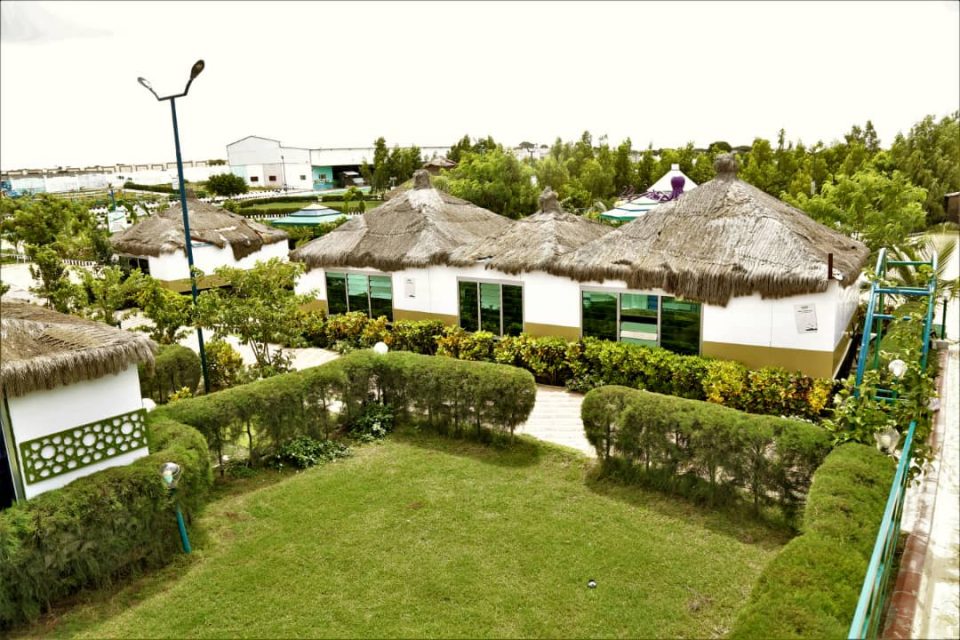The new real estate babble across Mogadishu had also led to an influx of people including some from the diaspora who returned to Mogadishu in recent years, a situation which drove housing prices to the sky and put strains on budget, making the idea of buying houses for many middle class families in the short run impractical.
By Mohamed Abdi
MOGADISHU – On the outskirts of the Somali capital, a new town is emerging. This isn’t a Mogadishu of blast walls and checkpoints – but rather a unique example of a promising social development enterprise.
Welcome to Darusalaam City, a quiet town dabbling with affordable luxury apartments and splashy villas, built across once abandoned area that rarely showed any investments potential for many of the city’s 2 million residents.
As Somalia tries to wean itself off foreign aid, this new privately-funded housing project is being used as an example of how the impoverished nation can move forward on its own, an initiative which challenges the common belief among Somalis that the outside world views them as totally reliant on foreign aid.
With a 7km-long road connecting it to the city, the multimillion project by Salam bank, a leading international Somali commercial bank offering both online and remittance services is Somali-funded, designed and built and they are proud of it. But more importantly it’s an impressive paradigm showing the world that this country has got potential.
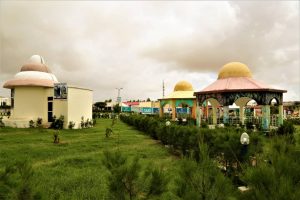
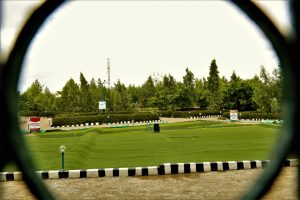
The construction of this flashy and well-protected property chain, which boasts multiple infrastructures including community gardens, public parks, community center, children’s playgrounds and supermarkets offers a glimmer of hope for many trying to escape the violence across other parts of Mogadishu, and will cheer up not only the people here but the city as a whole.
It also strives to show a contrasting image to the one of scarred memories to the country’s shattered past.
The 24-acre gated property which offers thousands of housing units is emerging from a landscape more accustomed to underdeveloped households than the glitzy new housing units, and is being touted by many as a model of how major local businesses with financial muscles should take the lead in the efforts to rebuild the impoverished horn of Africa nation which is recovering from the devastating decades-old conflict rather than relying on foreign aid or the long wait for the state to fulfill chronic need for rebuilding the country.
Among properties on the developer’s brochures are three four bed-room villas and standalone double storey houses with six spacious rooms designed in a 20th-century modern style housing designs, with purchase prices that feature figures far lower than comparable properties in other parts of Mogadishu.
Already, the developers are inundated with interests from potential house buyers across the country, including some in remote regions.
GAME CHANGER FOR THE MIDDLE-CLASS
In spite of the fact that properties around key government institutions in the center of the capital remain more exceptional and preferred than others far afield, real estate agents say that the new town’s business model which aims to fill the gap between the cost of housing and the wages of most families helped the developer tot up more profits than their competing peers banking on the costly properties located elsewhere as a result of high demands by middle-class clients.
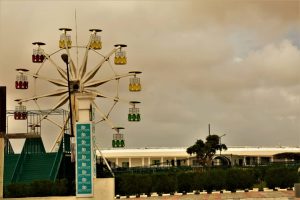
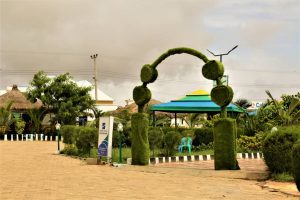
“To invest in low-income affordable housing and yet in such location was a far-fetched idea from the very beginning for many, but they missed the key point.” says Ahmed Muse, a real estate agent.
“But it turned out the opposite in profit margins and revived house buying spirit for both the lower income and middle families pushed to the corner by the wealthy class.” He said of the housing projects.
The new real estate babble across Mogadishu had also led to an influx of people including some from the diaspora who returned to Mogadishu in recent years, a situation which drove housing prices to the sky and put strains on budget, making the idea of buying houses for many middle class families in the short run impractical.
The increasing prices is not only due to the violence, but the Somali capital had a housing shortage, making average citizens feel weighed down by the higher prices. Seeing the higher income from the rents, some landlords also started opting to subdivide their house rooms into smaller rooms that can accommodate more tenants to increase their returns.
That’s where Salam Bank came along and devised the new creative housing mission to fill the middle-class housing void, with the added attraction of gleaming villas, apartments and schools in Mogadishu, one of the least urbanized cities in the Sub-Sahara Africa region.

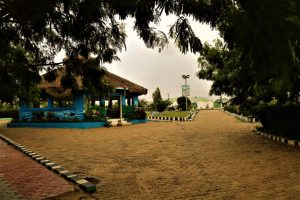
According to experts, development projects like this could help major corporate businesses to correct the wider negative public perceptions that they’re only ordained to rip their million-clients off their earnings through services they offer but rather that they’re contributing to the country’s post-conflict rebuilding efforts.
Launched in 2016, Darusalam City is the largest commercial housing complex in the city, and already is home to some hundreds of families, many of whom work several miles away in the city center.
Salam Bank’s unprecedented new venture had also uncovered the untapped affordable housing market which also caught the eye of investors, making the market for cost-effective middle-class housing hard to ignore.
“This initiative promises to be a model for the real estate developers to recognize they have got to switch away from the speculative real estate market to affordable housing.” says Mohamed Sheikh, an economist based in the Somali capital of the development project.
DEBT OF SERVICE?
Despite having received a substantial foreign aid, largely allocated to the security, politics and finance sectors, the cash-strapped government can barely pay public servants, making the vision to direct public subsidies from its limited resources to the building public housing far less likely.
For countries rebuilding after turmoil, there may always be more questions than answers to the responsibility of the country’s rebuilding efforts, with some countries have leveraged private sector expertise in the provisional schemes that makes sense for both the public and the private sectors.
Meanwhile, public opinion in Somalia do vary with regards to the new housing project in Somalia, an impoverished country which largely relies on foreign aid to rebuild. Some see it as the beginning of an ambitious journey for building a self-reliant nation, while others view it as a debt of service and social responsibility by the developer.
But such social development interventions by private sectors in the post-war Somalia embodies a sign of revival and hope that things are turning around, an exercise that might have helped draw the attention of the World Bank which along with the central government launched a $9 million worth flagship infrastructure project in Somalia called The Somali Urban Resilience Project (SURP) last year, the first grant the country had seen in over 30 years.
TOWN OF HOPE
With its well-ordered methodical layout and comfy homes, Darusalam is offering its residents the chance of a new life away from the occasional violence and hassle in other parts of Mogadishu.
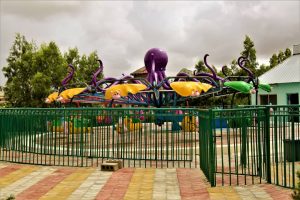

According to the property developers, notwithstanding the rapid financial profit that their venture is yielding, they’d hope to see similar developments schemes involving other private investors keen to take advantage of incentives to build affordable houses in order to tackle the housing shortage crisis well enough to rebrand post-war Mogadishu, once considered to be the most dangerous in the world.
“It’s definitely an inspiring scheme that caught everyone’s attention, and there’s no doubt that people want to see similar things happen in their communities.” says Fatima Ahmed, a business researcher based in Mogadishu.
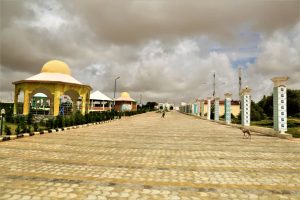
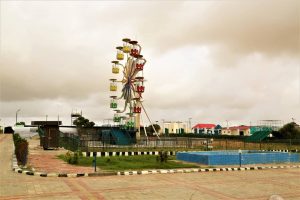
Mogadishu authorities believe that such projects are promising become a model for the city’s future planning and a symbol of a gradual process for an economic growth, urging other major companies to reciprocate the new affordable housing initiative in a cohesive partnership for strengthening basic service delivery and restoring economic resilience and opportunities to support the country’s transition out of fragility.
According to the World Bank, despite a rapid improvement in the country’s finance system, Somalia’s economy was forecast to grow by an average of between 3.5 and 4.5 percent annually in 2019-2022, when the partnership on social services will run.
Knowing the massive budget required to rebuild the city that it cannot meet, authorities urged for partnership and social responsibility to restore services and achieve the reconstruction goal.
“We must work together to rebuild every corner of our country for the benefit of each and every citizen in Somalia,” said Dr. Abdirahman Beileh, Somalia’s finance minister.
TRICKY HOUSING CRISIS
Despite the booming real estate business, the higher housing prices in some parts of the city make matters worse for the middle class families who cannot afford the higher rents. Many of them have already been evicted after their tenants were offered higher amounts of monthly rents or houses were purchased by wealthier families.
Among them is Sahra Hashi, a mother of seven who came to Daru Salam City on a recent day looking for a 3-bedroom house to purchase. She heard about the property through a radio advertisement.
“Their prices are somewhat within our financial margins and somehow affordable – I am full of hope of owning a house soon,” Hashi who was forced to move out her long time residence after a higher increase in the house rent said. Her previous $450 monthly rent for a three bedroom house was increased to $1000, a price that was affordable to the wealthier family which leased the house.
To her surprise, she was also told that the estate also offers affordable rental housing, a surprising notice that she says could help live in rental houses as she saves for the total financial threshold to buy a house in the estate.
But land brokers and tenants seem undisturbed by the people’s concern over the rent; but relish on it. They make their previous annual income a week.
Though housing experts welcomed the new town’s construction, they said much more was needed, particularly in addressing the ongoing housing crisis in Mogadishu by the government. Until that, the daily quest for cost-effective housing is an unceasing nightmare for the residents of Mogadishu, a problem that only few developers can barely work out in the long-run.
“It’s more than quadruple rent increase, that’s a good business,” he said.
With no set of real estate rules and regulations to follow, tenants are left at mercy of landlords and property agents, mostly, middle aged men who are not always formally trained for the jobs.
QUEST FOR GLORY
Already under a massive reconstruction, Mogadishu residents can hardly wait for a government’s funding to reclaim its beauty and tackle major infrastructure problems the city had suffered during nearly three decades of civil unrest.
Years of insurgency and occasional bombings by militants also compounded the scars on the city’s face, in a further challenge to its ailing infrastructure and left the remaining grace taking more jabs.
At the other end of the spectrum, the new town’s developers had to come up with an array of strategies to improve their properties including meeting a self-sufficient lifestyle requirements for its residents by providing them with necessary facilities including a fully equipped hospital, school, community center, gardens, amusement Parks, Fiber Optic Internet Connection and municipality services.
Meanwhile, as Mogadishu is struggling to transform through multi-pronged approaches of rebuilding, among this new real estate development project’s future plans is building lower-priced properties for the Mogadishu’s population, mostly low-income that’s been priced out of the commercial housing market.
Copyright ©2019 Alleastafrica.com All rights reserved. The information contained in Alleastafrica.com may not be published, broadcast, rewritten, or redistributed without the prior written authority of Alleastafrica.com


